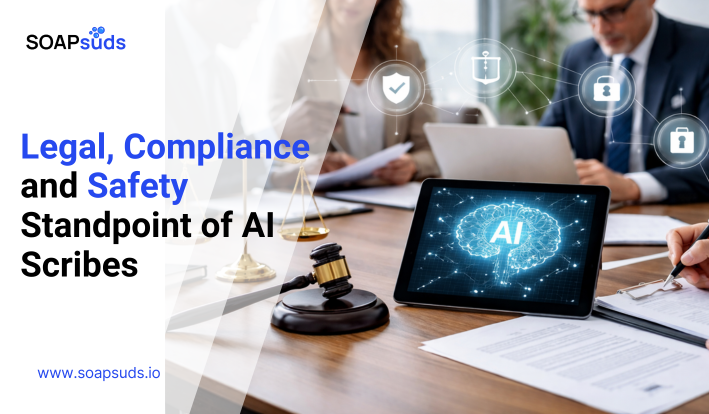Advantages and Disadvantages of AI in Healthcare
SOAPsuds team
Published: 3/17/2025
SOAPsuds team
Published: 3/17/2025

In today’s healthcare scene, automation driven by AI Medical Scribes, such as document automation...

Paperwork burnout in therapy happens when therapists become mentally and physically drained from constant...

The appeal of using an AI medical scribe is clear, yet healthcare organizations must first

Ambient artificial intelligence or Ambient Clinical Intelligence (ACI), often called ambient AI, is a type

Accurate documentation plays a key role in compliance, reimbursement, and quality assurance in hospice care.

In the modern world, technology plays an important role in helping people stay connected, especially
Clinical Notes
SOAP notes
DAP notes
AI medical notes